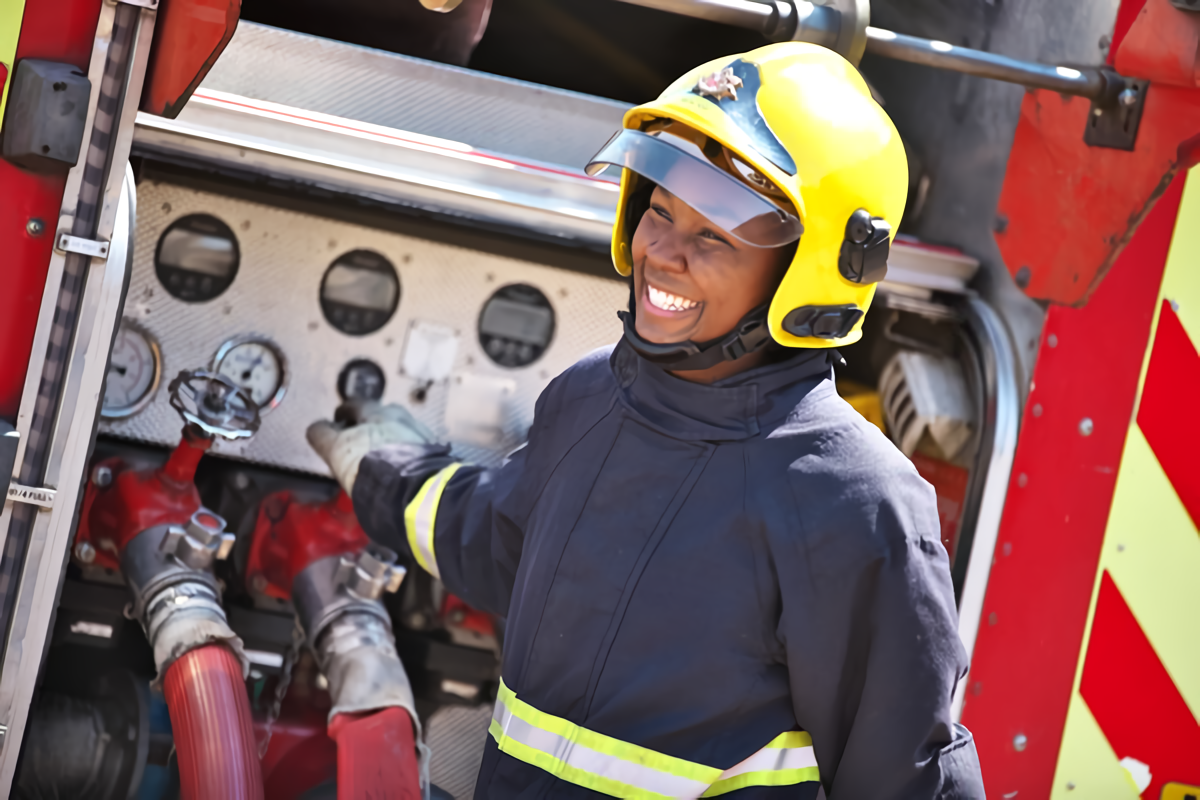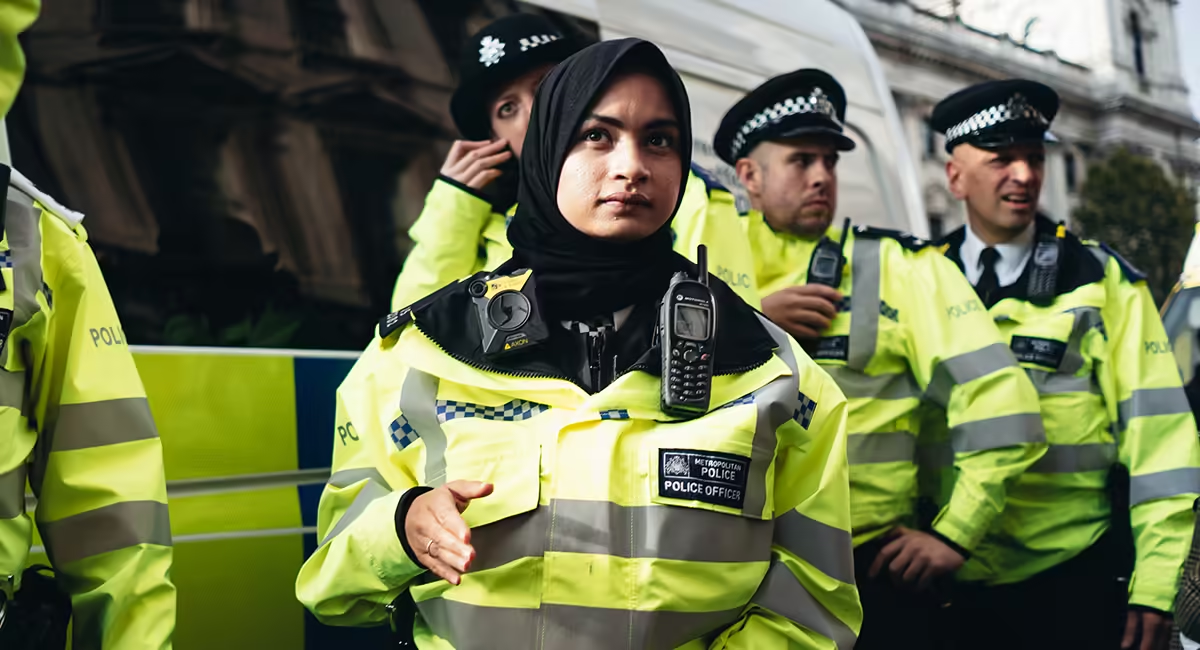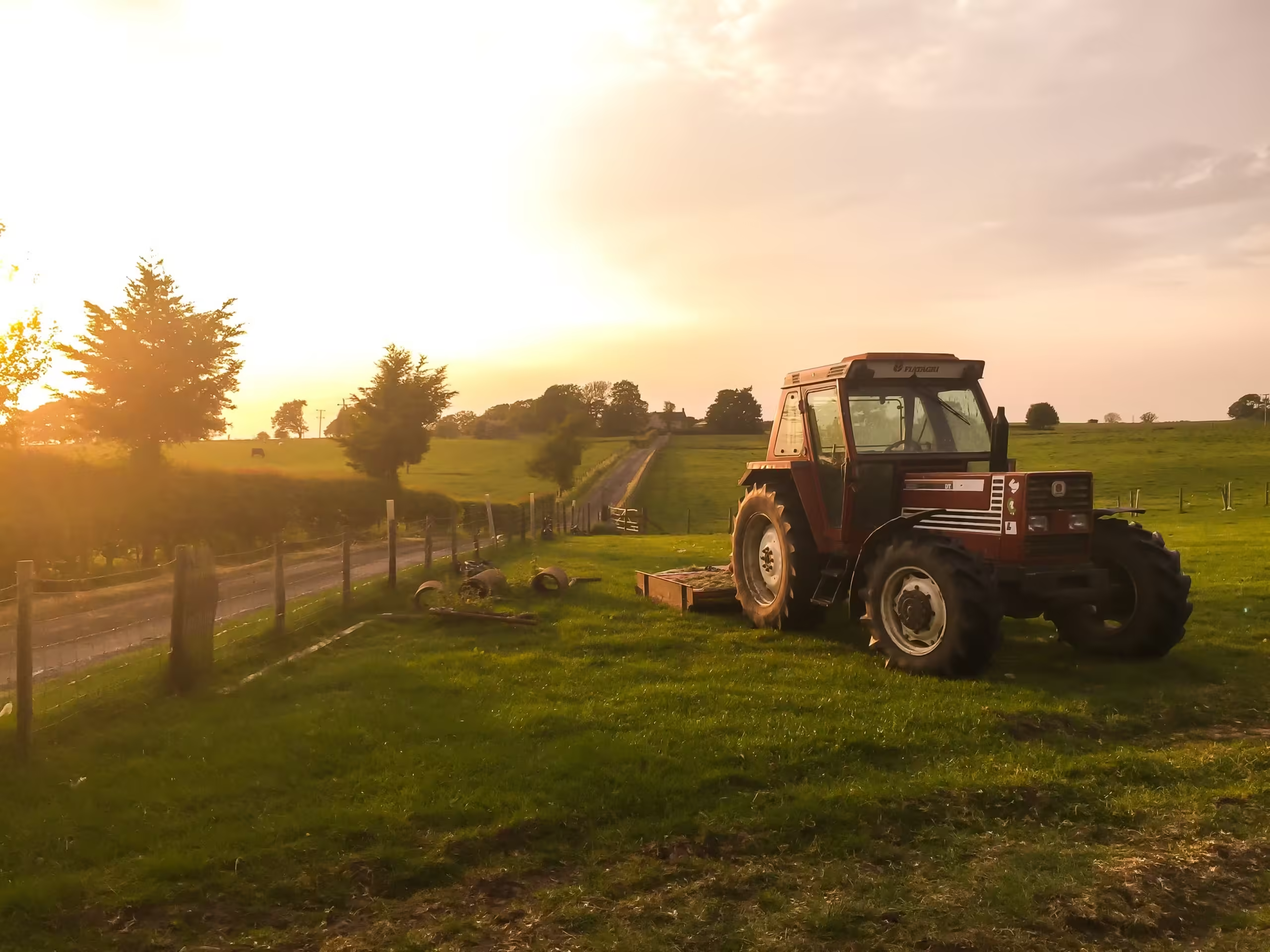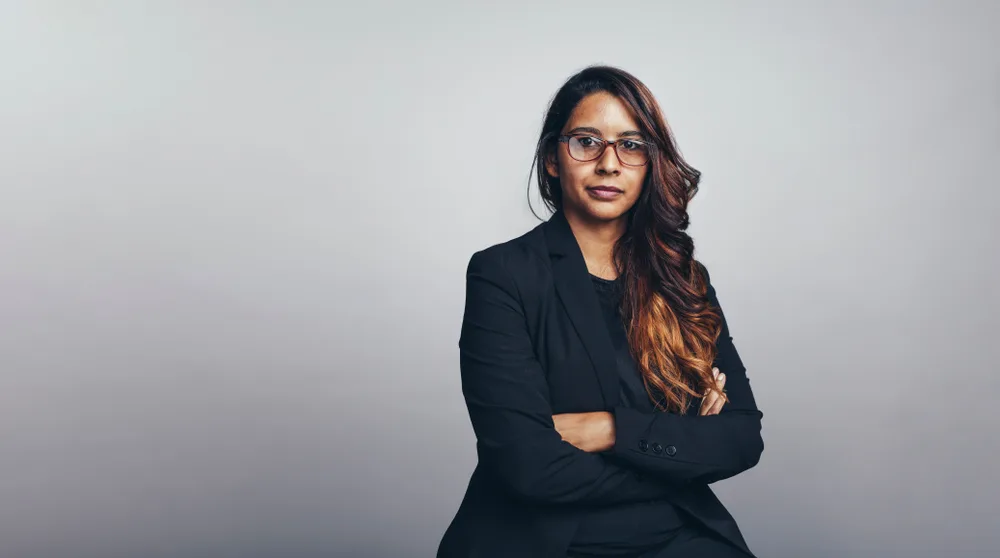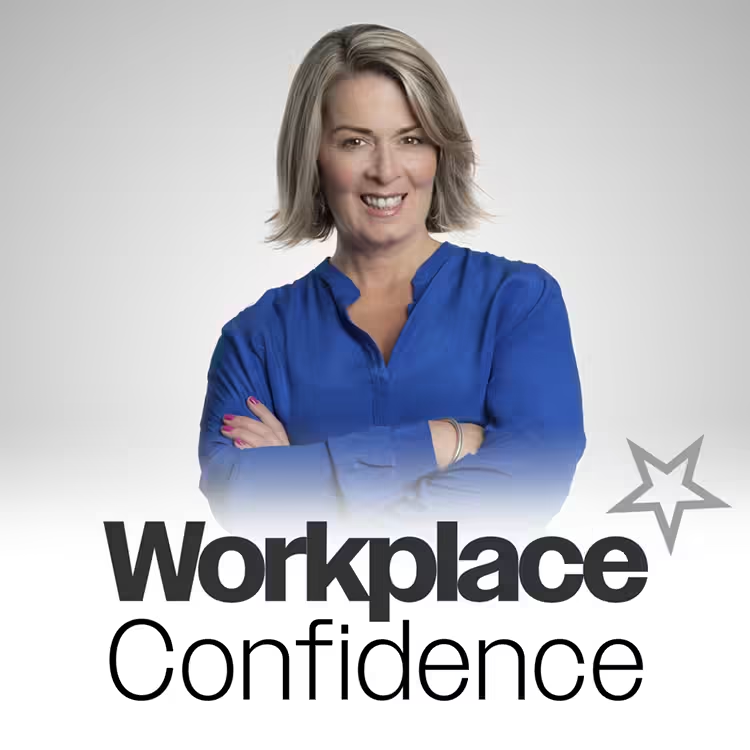
What is ESG? People, planet, purpose at Davies – Gillie Fairbrother
Episode 2: Workplace Confidence Podcast
Where people professionals share the great work they doIn this episode Gillie Fairbrother Global Responsible Business Officer at Davies a professional services and technology company. Gillie shares her unconventional journey from media and wellness into the corporate world, now leading ESG initiatives with a focus on making businesses more viable and sustainable...
Listen now
Gillie describes her role as being an "air traffic controller" for responsible business practices across Davies and explains how she reframes ESG - often seen as a corporate buzzword - into something more tangible and relatable: People, Planet, and Purpose. She believes that this approach not only covers environmental sustainability but also addresses the financial and operational viability of the business.
Gillie and Penny delve into the challenges of embedding ESG across diverse business units, emphasising the importance of practical, business-driven strategies that resonate with both clients and employees. They also discuss how Gillie has overcome imposter syndrome, built her confidence, and embraced authentic leadership to drive change.
Their conversation is insightful and relatable, offering actionable advice on creating inclusive cultures and aligning business strategies with broader social and environmental goals.
More episodes
Transcript: Gillie Fairbrother, Global Responsible Business Officer at Davies
Gillie Fairbrother
From a Davies perspective, we sort of translate, you know, all of these different buzzwords, ESG, sustainability, CSR, responsible business. You know, there's been a lot of political, cultural pushback about what we call this thing, but we see it as viability and the business really, really feeds into that. So.
Defining viability: beyond environmental sustainability
(02:23.93)
You could use sustainability, but quite often people think, that we're just talking about trees, but we mean financial sustainability. So when I use viability, it sort of gives you that, how viable is your business? Whether that is from a financial standpoint, from an economically sustainable standpoint, from a, will you have a product people will buy in 10 years? Will we have the materials to make the product? Right. It covers everything you do as a business. Will you retain your employees? So anything that makes you viable.
Three pillars of strategy: people, planet, purpose
is what we cover. We actually bucket it into three pillars, which neatly ties to ES &G. We've got people, planet and purpose. That's how we organise our strategy into those three different buckets.
P.H
Environment, your planet. Your social, your people and your governance, your purpose. Great. think that's a bit more of a mouthful, isn't it, than ESG? Yeah. I'm the PPP director.
Gillie Fairbrother
I mean, and I think like, this is why we sort of changed it to responsible business because no one knows half of people don't know what yesterday is unless you're, know, and I think like, you don't need to spend that much time explaining what you do. It's more about getting involved and the remit is pretty large and vast and it covers every single department. I mean, there's not one department that I don't work within the business, which is really cool because I love people.
P.H
Okay. So you get into know all of these different departments. You're encouraging them down the viable route to think about with that lens on, suppose, to think about business and their targets and goals. How on earth do you have all these conversations and actually move the dial on anything?
Navigating client expectations and regulatory obligations
Gillie Fairbrother
My work is heavily driven by our clients' expectations, as well as regulatory obligations, as well as employee expectations.So there's nothing that I'm doing that's saying, hey, this is this really nice thing we could be doing. And it means that we would save more trees. Like I think if I went up to the corporate world on that level, they'd say, that's nice. Go away. Whereas I take this directly from our bottom line. So I'm like, we have X amount of clients that require us to report our greenhouse gases to this body. This is how much it's going to cost. What do you want to do about it? Otherwise we will lose this much business. And it's really hard for people to argue with that. And I think it's
(04:39.34)
just constantly looking for those win-win scenarios. I'm not coming with an agenda. My job at Davies is not to bring my own personal opinions. It's to make the business more viable. And if there's a case for that, then it shouldn't be difficult.
P.H
And the people-planet purpose. I want to focus on the people bit. Yeah. Because obviously this is called workplace confidence and that's generally in people. Although they need the purpose to feel confident, perhaps. I don't know. Just lots of- And an environment to thrive in. And an environment to thrive in.
Exactly. But I'd love to know about the people aspect. You know, what practical ways are you changing lives, if I may be so grand?
Gillie Fairbrother
Yeah, I mean, people we put up front and centre. So instead of having the E, the S and the G, we put the people up front and centre because we are a people business. They are the most valuable part of our business. If we didn't have people working for us, we wouldn't be producing anything. You know, it's a lot of
sitting at desks and computers and amazing brains working and doing things. And it's sort of the area that I'm the most hands on, I suppose, working on things like culture. I do think we've got to a bit of a sticking point with what I'm going to call D&I, something that I've sort of moved away from using as well. It's like every time we tried to do something good, someone pushes back and finds a reason for us not to do it.
We really try to desensitise conversations like that.
Tackling pushback in diversity & inclusion initiatives
P.H
Give me an example of that then, obviously not naming names, but what scenario have you felt that pushback?
Gillie Fairbrother
I I can mention some names in terms of political figures. When I was head of ESG at a US tech firm based in Tampa, the governor of Florida made D&I illegal for companies. So I mean, serious pushback, not just people going, I don't want to do that. But I think that's become...
a theme, the whole anti-woke movement. There's a lot of like, well, why are we still asking for this? why is this? It was like, because it's still not fixed. it's annoying that we're..
P.H
Is it more from from regulator and governmental and right wing forces, if you like, that are anti-woke? Which, yeah, okay, we could go there, but let's not. That's one day one. Rather than individuals or teams of people who go, actually, Gillie,
(07:00.094)
you'll find that doesn't match the DE&I agenda. That's not what you're talking about, is it?
Gillie Fairbrother
No, I'm talking about big, but if you think about those big movements, they are made up of individuals. So I don't know if you can really separate the two, right? And I think, you know, another issue, if we move away from that one has been, I think, a distinct lack of allies. And I don't think it's a lack of willingness. I do think we've got in a position where it's a bit like the health and safety went mad and we're like, what can we do? What can we say? We don't know what to do. And DE&I training is
went down a route of like click through videos of going, don't say this and you can't say that. And I'm like, we need to change this. We need to find out what people do want to say and be positive about it and engage allies who know how to advocate for other people rather than going, I'm not really sure what to say. I don't want to get it wrong. So I'm just not going to say anything. And now we're just letting this bad behavior perpetuate.
P.H
So culture, talk to me about culture then.
Culture feedback workshops: listening and learning
Gillie Fairbrother
So we're doing a series of feedback workshops across multiple levels, of the business to get a big...
big diverse mix of people in smaller groups to feed back on culture. What's going on? What do you want to share? What's interesting? What are we seeing? So instead of calling it like D&I training, we actually want to hear back, right? There should be a two-way conversation and that will then inform our steps moving forward.
Because yeah, we could set a target around 50 % representation of whatever group by this date, but we don't have the culture to support it. We're not going to keep them. So we want to really work on the culture piece. We know it's going to take a long time, but it's going to take a long time anyway. So we might as well try and get it right.
P.H
That is interesting, isn't it? It's all very well having your targets and your aspirations for change. But yes, ultimately the culture has to support it. Otherwise it goes nowhere and all your efforts are wasted. So what are people telling you in the feedback groups about culture that they enjoy and perhaps what they would like to see less of or more of?
Gillie Fairbrother
Well, we're still in the process of kicking those off at the moment. the data I have now is from employee engagement surveys, but we do have six employee resource groups. We only had four up until last year, but we now have Eco-Debates, which is our eco group, and also our women's network, which has just kicked off and we've had the most interest.
(09:15.178)
in that group and people joining that group, which I think in itself says quite a lot. And then people are like, yeah, here's a space for me to say something and it feels safe. And the really exciting thing about our women's network is we had male allies join, which to me was brilliant because I am so fed up of preaching to the choir, having conversations with people who are already convinced, who already doing the things. We need the allies, the allies, ones that aren't in the room, that aren't at the table, that don't come to the conversation.
The complexities of managing culture in a diverse organisation
P.H.
How would you describe culture at Davies. It must be quite difficult to have one type of culture given that you've got so many different professional services companies underneath your umbrella.
Gillie Fairbrother
Yeah. And I think that's the point, right? You know, we see ourselves as one Davies family and we have overarching values as a business, but you you can't dictate values to people. people come with their own values, right? That's kind of how it works.
But for me, it's actually, you know, we want diversity, right? So we wouldn't expect every business to be like each other because a call center is not going to be same as a Lloyd's Market Management Agent Syndicate. They're going to be working in very different ways, interacting with clients in very different ways. So I think it is understanding that nuance, which is what makes it so complicated to manage because this is not one, you know, yes, I'm looking at the strategy and helping advise on it, but
Culture is everybody's job, right? How we all treat each other every day. Or how you don't treat each other.
P.H.
And how you don't treat each and calling it out and having difficult conversations.
Gillie Fairbrother
Yeah. Exactly. And knowing what it should look like is tricky because I wouldn't ever publish our ethnicity data on a global level because it's irrelevant, right? Our Hong Kong office is not going to have the same ethnic diversity as our London office or our Stoke office or our New York office.
But if you look at things like gender, perhaps you're like, right, here is something that's a bit more universal. So it's about understanding what good looks like and then how do you start to move towards that?
P.H.
And your perspective on what good looks like would be different to somebody else's perspective as well.
Gillie Fairbrother
Absolutely.
P.H.
And you mentioned how you manage that. I mean, can you manage this?
Empowering middle managers to lead cultural change
Gillie Fairbrother
I don't think you can control people. And you should not control people, right? Be nice if we could.
But I think it is about that top down and bottom up, right? Like you've got to meet in the middle. You could have the CEO saying the absolute best thing, this is what we're going to do. But unless that's filtering down through the different levels of the business and people are seeing that behaviour and feeling included and feeling like they can say and open up and call things out, you're not going to get anywhere. no, you can't.
You can't tell people to do, but you can try and demonstrate it as much as possible. Make it normal. Get those middle managers to be calling things out themselves on their team calls. So people start to see those behavior shift.
P.H.
And how do you encourage that in your middle managers and how do you give them the confidence perhaps to support this culture?
Gillie Fairbrother
Exactly. It's coaching, it's training, it's engagement, and it's a massive, massive piece of work.
P.H.
And how do you even go about it then, Gillie?
Gillie Fairbrother
You know, what are you doing to do this? So we're starting with these culture workshops. So getting that engagement piece, getting that feedback, testing the water, seeing how people feel, and then we will inform our next step based on the feedback we get from that. I think it's like goes back to that age old problem of you can't fix what when you don't know what the problem is, right? So we've got to figure that out first. And actually, know, Davies has an amazing culture from what I've seen in the people I interact with.
But there's always going to be those pockets that you're like, perhaps there's room for improvement here. And there's another conversation around the younger generation coming into the workforce, like their expectations, what they will put up with, what they were put up with is totally different. And I think it's a breath of fresh air coming in that actually some people are going to go, okay.
P.H.
Tell me a little bit more about that then, Gillie. What is this breath of fresh air and this younger generation's attitude and requirements and how are they different?
Shifting generational attitudes in the workplace
Gillie Fairbrother
Well, yeah, I've been talking to a few people about this lately because, you know, having a conversation of like, will this problem fix itself in a few years time? I don't know if it will fix itself because there's always going to be differences. There's always, you know, with human nature to have those prejudices and differences and different themes arise. But I do think and I do see with the younger generation that there's
(13:42.59)
an acceptance of things that perhaps weren't accepted in prior generations. You know, things like LGBTQ status, like the younger generation, like, well, why would I even care about that? Let's get on with the job. So all of those sort of struggles we've had in the past might not be there anymore. There may be different ones. We don't know what they are yet, which is why this is a forever task to care for your employees. Really, that's essentially what we're trying to do here.
P.H
Do you think younger people are in a position to call it out when it isn't right. so if you're rubbing along with the senior leaders who are 30 years older than you, perhaps, is there a chance then that young people would call that out or would they just vote with their feet and leave?
Young people and social values: a new workforce dynamic
Gillie Fairbrother
I mean, I think it's going to depend on the personality, right? But what I do see, and we have an apprenticeship arm at Davies where we place a lot of young apprentices in the businesses.
At Davies also, we just signed up to do, to work with LTSB charity, which is an amazing social mobility charity that helps do mock interviews and support young people going into the workforce from lower socioeconomic backgrounds. And the type of things that they say, just like, I keep a straight face, but I kind of just want to go.
P.H.
Tell me, what do you say?
Gillie Fairbrother
I just literally just say something and not feeling that, I can't say that. then, you know, this, this whole idea of hierarchy seems to have dropped away a little bit that it's like, well, I'm here and I have a voice too. I think it would be a mix, but we definitely see young people swerving away from companies that don't perhaps have the same ethical values that they have.
P.H.
What sort of things are we talking about? Just tell me what made you sort of smile. The environment's a big one, but yeah. And what would people say in an interview perhaps or an interaction with you that you'd go, great.
Gillie Fairbrother
I mean, like, somebody said something the other, because I think I asked a question in a mock interview about seeing some behaviour that, or being challenged on something or not listened to. they were like, well, I just go and ask everyone else and see what they said. And if they all backed me up, then I'd go forward and say that this is what everyone else thinks. So what are you going to do about it? And I was like, it's actually brilliant. That sounds super confident. it also wasn't, you know, obnoxious. It wasn't a flat out refusal. It was, I will go and gather the evidence and test the water. And it was a very...(16:01.29)
educated answer, which I was quite impressed with.
P.H.
Tell me about this strategy then where we combine people, planet and purpose. You rolled that out just recently, didn't you? And have been around sort of talking about it. You've done quite a lot of work in the short time you've been at Davies in getting that strategy together. What are the main selling points? For it and who needs to be on board with it?
ESG and business viability: more than just green initiatives
Gillie Fairbrother
Well, I think the good thing, the good news for me was that, you know, people are still like, I don't know what ESG is, it's new. I'm like, no, it's nothing new. Like ESG is nothing new. I think the environmental measurements are probably quite new to a lot of people who've never done greenhouse gas counting before. But everything else is things are already doing or already should be doing. So my job was really to tie it together, package it and communicate it. Obviously there's a lot of improvement to be done.
But I think being able to communicate that is really important and the pressure on us to now perform in that area is expanding. mean, I'm now-
P.H.
pressures are coming from?
Measuring success: annual reporting on people, planet, purpose
Gillie Fairbrother
Everywhere. So that's about your employees who are going to come and work for you. Will they stay with you? Are you a good company? We have clients who have expectations. We now have things like contractual obligations to reduce our emissions within a contract time.
governments, regulation. I've now just seen four more states in the US who are looking at bringing in climate accounting following California. It's not just one side of the pond thing. is popping up in Asia. The massive standard in the EU is CSRD, which if you say CSRD to any sustainability professional, you'll just see them shiver because it's a huge regulation that's coming in. It is the cost of doing business now. That's basically it.
P.H.
And this is driven by, those are the pressures, but ultimately driven by shareholder requirement or is it a cycle, a circle? How would you describe the impact, kind of pressures and influences on that? I mean, you could typically say shareholders recognise that a business has got ESG at the top of its charts and gunning for that to be a better business than a
(18:18.656) and then one that isn't. Is it as simple as that though?
Gillie Fairbrother
Yeah, and I, yeah, it's probably the main stakeholder that I didn't mention there is a piggybacked company. Yeah, our investors are crucial, especially when looking for new investors, but also when we're looking to acquire as well, we're assessing potential &A activity on ESG performance because that affects us. And yeah, it's just good business. mean, again, we're back to the beginning. It's the bottom line. A sustainable business is a more viable business, which means you're more likely to have money. Again, taking out the personal agenda, whether you believe in climate change or not, we're running out of fossil fuels, so we're going to have to transition.
P.H
That's a really interesting way of looking at it. And I think a much more convincing or persuasive argument when you're up against people who are like, no, crossing their arms in front of their chest, going, do you know what? What's all this about? Shareholders going on about it. all right, we'll do some nodding to it. But actually it's about the viability. Yeah.
How are you measuring your success so far then? What are you doing with this strategy to look at it in a year's time and go, right, we've definitely moved the dial on this? are the measurements?
Gillie Fairbrother
So every year we're now publishing a report on this, our responsible business report. the first one went out and we report on an FY basis. our financial year actually runs July to June. So we just finished and we're now working on FY24.
And that comes with a lot of information, anecdotal data, but also a solid set of KPIs for each pillar, people, planet and purpose that we're measuring every year. And this will be year two. So we don't quite have a trend yet, but at least we will have a direction this year when we start to look at it. And that's something we've committed to do every year. So that's a really good measurement, but there's many other things that we're measured by.
The role of confidence in leadership and personal development
P.H.
This level of sort of ambassadorship, influencing and persuading and implementing for others to get on with is an incredibly big role, but also one that requires confidence in yourself. Talk to me about your own relationship with confidence, because you mentioned imposter syndrome earlier. Yes. Where are you at now with confidence? It sounds like you have buckets of it.
Gillie Fairbrother
I do feel very confident. mean, obviously you have the moments, but yeah, I was thinking over the weekend ahead of this chat.
(20:34.134)
and trying to figure out where it came from. I'm very lucky I had a lot of encouragement as a child, all the support that I needed, a lot of the things that luckily work in your favour in the society that we're in right now. Speaking English, being white, being educated, all of those things have been a massive privilege which have helped me. But I think without that confidence, the rest of that stuff's a bit useless.
I think it boils back to primary school maths. Tell me more. was terrified of my maths teacher who used to make us stand up and recite the Times tables and if you didn't know them, you were humiliated. I think that put something in me that made me terrified to ask for help, to admit that I didn't know what was going on.
to know what to do. That was a fear that I think I carried for quite a long time, probably into my late 20s when it came to work that I just go, I don't know what I'm going to do, so I'm just going to climb up over here and pretend that I do instead of going, I don't know what that means. I need to learn it. And I think it took me a really long time. And actually during COVID, I had some coaching from an amazing coach. She's a friend of a friend who's become a friend now.
You know, this was around the time that I was moving into the ESG role when it was offered to me at Cineverse. And I was like, I don't know, can I do this one? Here's this thing. And it was so transformational that I decided to train to be a coach because I thought I want to have that skill. And just to really look at like what is true, what out of your brain is true. And if it's not true, then why are you letting it get in your way and how you can break that down. And I work in my spare time now.
Switchboard, which is an LGBTQ listening service, which, we don't give advice. We're not counselors, but the coaching and the asking questions and helping people to come to that truth for me has just been absolutely transformation. And I think that's why when I am today now standing in front of a room of 300 senior leaders at Davies telling them something is that I have something to say that I believe in and that means they should just-
P.H.
You've done the work. It's not just an accident. You've actually worked at-
(22:52.45)
personal development and developing your confidence, your self-belief, and separating what is not true and what is true and doable and viable, to really sort of come out the other side and enable others. Is that something that you'd gift to everyone if you had a magic wand?
Gillie Fairbrother
I would. And that's why I do switchboard, right? I try to do that. The people that I work with and come across with come across.
I mean, if I had more time, I'd probably like to do a bit more coaching. But I just think it's the most incredible skill. But I do think, like you say, you need to want to make that change and change is hard, right? I think the other really helpful factor is that I went to drama school and did a lot of drama as a kid. So, put me on a stage and give me the mic. I think overcoming those fears of talking.
Obviously when I was in my wellness career, I was teaching people, right? So one of my first gigs when I just qualified as a yoga teacher, I have no idea what I'm doing here, was to teach 50 Deloitte employees on the rooftop of a hotel that was quite windy. And I had a moment where I was like, this is going to be awful or I could just go for it and just make it funny and engage them on a way that they'll find it interesting.
And I think it's that like, if you have confidence in what you're saying and what you're pushing across, no one can say that's wrong, right? Unless you're saying something about something factual, but your feelings, your emotions, how you perceive it, that's yours alone and no one can take that away from you.
P.H.
So I work very much in the workplace confidence space and start by really discussing with people how we see confidence being displayed.
And we assume that other people are confident, whereas actually our own experience of feeling self-belief and high self-esteem and confidence may be different. Can you see the connection there between the wellbeing of your colleagues and their confidence and that ability to change and grow?
Gillie Fairbrother
Well, I think it comes down to that inclusion piece, right? Do you feel included? Can you be authentic? Right? Because we're not looking for fake confidence. We're looking for someone who has the actual confidence, right?
Otherwise, it's not real. You've not solved the problem. think the safer you feel, and huge shout out to my manager, Emma Wedderburn, who's our chief human resources officer, just the most incredible leader, considerate, encouraging. I'm constantly learning from her and trying to take things that she says forward, but that's what we're looking for. If people feel genuinely included and open to make mistakes, and the thing I always do is
Tell people when I'm falling apart inside, right? Be like, God, I don't know what's going on in my head. Brain fog, just lost that word. Early menopause, yay. Make a joke of it, be honest and show those vulnerabilities. We're not out there to put across perfection. We're out there to be real. And I think people will be like, God, yeah, I'm like that too. Yeah, that's fine. I can be like that now. It's that going back to that culture piece, how do you demonstrate that behavior? And being vulnerable is so powerful.
P.H.
So ESG or People, Planet and Purpose, is integral to overall workplace confidence, would you say? And what are the benefits of that?
Gillie Fairbrother
Well, I think people want to work somewhere that has a purpose, right? I mean, I may be wrong, but I'm pretty sure no one wants to go and sit at their desk all day and not care about what they do or go home. I mean, maybe they do, but it wouldn't feel that fulfilling, I imagine. And actually the more fulfilled you are and happy you are the connection you have with your colleagues.
That's what makes you want to come to work, do a better job. We're back to that win-win scenario, right? So we're trying to create that engagement, that purpose that people care about what they're doing. They want to do a better job. They feel better. We feel better. The investors feel great. Like it is win-win, right? There's no side motivation here. It's totally circular.
P.H.
What do you do personally to keep the wheels on then, Gilli?
Gillie Fairbrother
Time out. Time out. Okay. So strong.
Yeah, I love people. I'm busy. Like I still teach yoga in my spare time. I still do switchboard. Obviously I have the job. I've got friends. I've got a life. Still love raving. But for me, it's work hard, play hard and chill hard. And without the chill hard bit, the stall falls over. Like I know I need a night in the week where I come home and I don't do anything. I have dinner and I watch TV and I don't have to see anyone and I've talked to many people and that's what I know I need. And if I don't get it and I don't have that time to look after me.
(27:27.326)
I feel literally stress in my stomach, which is going to shorten your life, make you ill, come back later or something more horrible. So it's like, where do you make those boundaries for yourself and be confident enough to enforce them?
P.H.
Yeah. And I think that time out, that chill hard, I love that, work hard, play hard, chill hard is crucial for confidence in order to get away from anxiety and cortisol.
you know, the endless sort of moving all the time without any moment to reflect. I've certainly looked a mile in those shoes, but I see other people really have worn out from this corporate rat race, we call it, and everyone's so busy all the time. Actually that dedicating time to yourself to do nothing or go cycling or, know, a kind of blueprint for your own personal success.
How do you help others do that then in order to build their confidence? Do you see it at the workplace? Do you make a role model of yourself doing it?
Gillie Fairbrother
Yeah, and it hasn't been easy for me. Like I've in the past always been a yes person and not want to let people down and, but I haven't seen them ages for, I should really go. And actually I've gone, no, I don't want to. I need some me time. They're like, what else are you doing? you, I'm having me time. And I think maybe the older you the more confident you are. But I always try and...
example good behaviors. In my team, you don't have to tell me when you're going to the dentist or going for a walk at lunchtime. You know when the best time is for you to work. I am very much a brain in the morning person. In the afternoon, after three, don't ask me to write anything. That's not my time. That's when I will perhaps read up on what's happening in the news or look at the industry or perhaps review something.
It's about figuring out what works best for you and then being confident enough to implement it. And I think the hybrid working environment has definitely helped that because it gives that flexibility. And we had a panic before, when I say we, I mean, the corporate world had a panic before COVID going, what if people are just not going to do any work? I'm like, well, we would definitely notice that pretty quick.
P.H.
It would show up at some point and not just at year end. Yeah, exactly.
Gillie Fairbrother
(29:46.316)
So I think is about demonstrating those good behaviours and asking people like, are you okay? What do you need? Like it's, I think sometimes we forget in corporate communication that we're people talking to other people and we've got to find this proper way to say things. Whereas actually you can just say, how are you doing? Are you all right? Be a person, be that considerate. Yeah, person.
P.H.
Gilly, it's been fabulous talking to you. When will ESG or People Planet purpose? And the viability become a sort of embedded confident part of doing business, do you think? Is it going to be in our lifetimes or is it happening now?
Gillie Fairbrother
I think it's happening now. And I think that's coming down to all the different pressures in our industry, particularly very client focused, right? You know, how are you delivering this service? How are you proving it? You know, we're getting questionnaires every single day. And I think the business is waking up to the fact that this is not this thing we do on the side. It's about
How do we design products? What could we do better? And I think everyone is moving along that journey. The Red Glaciers we have coming in are now starting to push people in that direction and we're starting to train our supply chain as well. So it's all moving in the right direction. Some things have got tighter deadlines than others and the impact is going to be a lot worse than others, but time's going to tell, right? And like I said at the beginning, this job has a lot of...
hopeless despair attached to it. Yeah. Because you could wake up in the morning and go, we're never going to do this, this is going to be awful, it's going to be terrible. Or do you just keep moving forward and noticing those small wins all the time? And that's sort how I try and remind myself when I go into the hopeless despair.
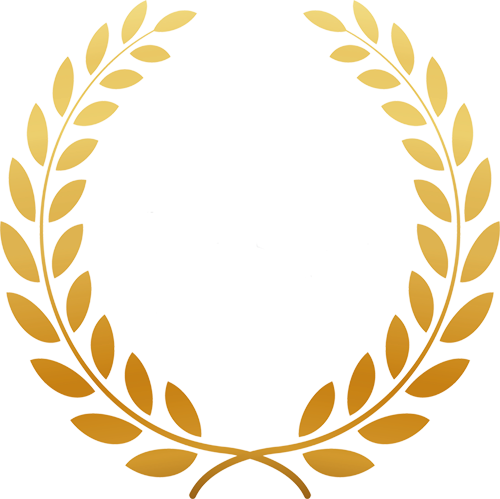
Finalist
Personnel Today
Learning and Development Supplier of the Year
2024

Finalist
Business Book Awards
Short Business Book
of the Year
2023

Finalist
Lloyds Bank Business Excellence Awards
Business Enabler
of the Year
2022

